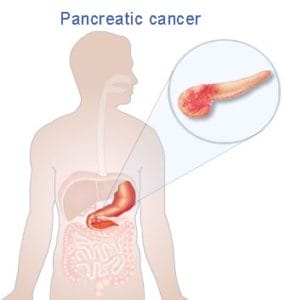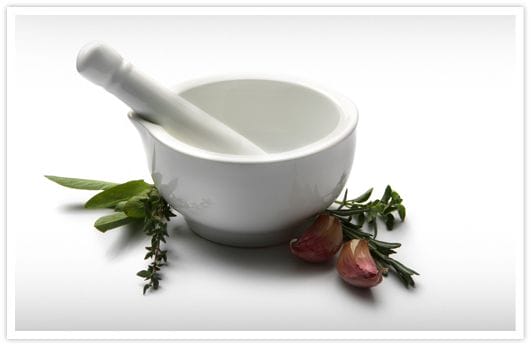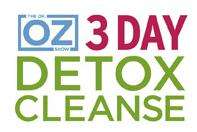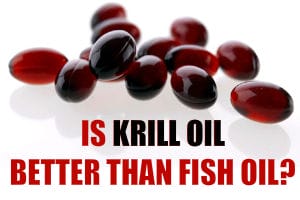 Cancer is perhaps the deadliest disease humans are battling for centuries. Of the different forms of cancer, pancreatic cancer is the most invasive and of poor prognosis. Thanks to the advances in modern medical research, there are more survivors from breast and prostate cancer now than ever. Nevertheless, pancreatic cancer remains one of the greatest killer diseases of our time with little chance of survival, As Dr Oz says, “because it is hard to find and almost impossible to treat”.
Cancer is perhaps the deadliest disease humans are battling for centuries. Of the different forms of cancer, pancreatic cancer is the most invasive and of poor prognosis. Thanks to the advances in modern medical research, there are more survivors from breast and prostate cancer now than ever. Nevertheless, pancreatic cancer remains one of the greatest killer diseases of our time with little chance of survival, As Dr Oz says, “because it is hard to find and almost impossible to treat”.
In Dr Oz show on ‘Biggest cancer risks‘, he discusses about the risks and preventive measures for cancer in general and pancreatic cancer in particular. Maria, a guest in the show explained about her mother being diagnosed of pancreatic cancer at age 73 and how she lost the battle in about twelve weeks. She also has lost another relative who died from the same disease at age 50. The reason for her to come to Dr Oz show to know about her own chances of getting this disease resonated with most of the viewers. Dr Oz wants all the viewers to become aware of the risks of cancer and what the experts suggest to be able to prevent it from occurring.
Pancreatic Cancer Risks And Solutions:
One of the foremost things to do is to look for early signs like abdominal and back pain, jaundice, pale colored stool, weight loss and nausea. Maria’s mother was complaining about pain on her side that persisted for several months and was misdiagnosed for pneumonia. When she was finally diagnosed of having pancreatic cancer, it was too late. Dr Oz showed us with a model of the human body, why it is difficult to diagnose pancreatic cancer. Pancreas is an organ located deep inside our visceral cavity underneath the other organs and that makes it difficult to feel it. Moreover, when it gets cancerous, it becomes hard, invasive and it hooks on to nerves (being close to the spinal cord) that traverses to different parts of the body. That makes it hard to accurately sense the origin of the pain.
Dr Sarah Thayer, MD, Director of Pancreatic Cancer research Center from Massachusetts general hospital and a guest on the show outlines the important information we need to know to take advantage of the cutting edge research and prevent this deadly disease. She reveals that the biggest risk is consumption of soda and alcohol. She emphasizes that in addition to excess alcohol, as little as two soda drinks a week can increase our chance of getting pancreatic cancer by 87%. Dr Oz describes with the help of a model how the insulin production in the pancreas is impacted by the sugary soda drinks. The normal capacity of the pancreas to produce the hormone insulin is challenged by the excess sugar in the bloodstream and it gets overburdened or stressed to the extent where it cannot handle that. Therefore, Dr Oz recommends only one can of soda per week and no more than that. Likewise, recommendation for alcohol is one drink a day.
Dr Thayer also talked about a recent study out of Brown University that showed that people who have gum disease (gingivitis) develop increased risk of pancreatic cancer. Therefore, it is absolutely necessary to bring it to the attention of our dentist if we detect any signs of gum disease e.g swollen gums or bleeding gums or inflammation. It is always better to maintain good hygiene of our teeth and gums to prevent any such infection from this bacteria that causes gingivitis. Finally, the most important risk to consider is diabetes. The association of diabetes and pancreatic cancer is obvious because both are related to the deregulation of insulin production. It is kind of a double edged sword.
Reduce Risk of Getting Pancreatic Cancer
It is known that diabetes is observed in patients who developed pancreatic cancer but also, long term deregulation of insulin due to diabetes can cause pancreatic cancer. Although type 2 diabetes can be treated with medications and lifestyle changes like diet and exercise, Dr Thayer told us about a simple ingredient that can make a huge difference.
1. Vitamin K
Vitamin K is found in leafy vegetables and recent research has shown that consumption of vitamin K can reduce our risk of getting diabetes type 2 by 50%. As we decrease our risk of diabetes we actually lower our risk of getting pancreatic cancer too. However, people who have have a family history of pancreatic, ovarian or breast cancer do not have to panic.
2. Baby Aspirin
Dr Thayer suggests an amazing solution. It is as simple as a baby aspirin. It is surprising that aspirin could be used to prevent cancer as opposed to the understanding that aspirin promotes pancreatic cancer, she argued. But recent research has provided evidence that a baby aspirin (not more than 81 mg) taken as often as once a month can reduce the risk of pancreatic cancer. In spite of that, people who believe they are at high risk due to their family history, should bring it to the attention of their doctor and should take advantage of the advanced screening methods involving ultrasound, blood tests and CT scans. The take home message from this illuminating episode is that prevention is possible and it is easy with a few changes in lifestyle and diet.
Fruits and Vegetables That Can Prevent Cancers:
Dr Robynne Chutkan, MD who is a gastroenterologist walked us through the benefits of different fruits and vegetables that possess nutrient properties that can prevent cancers. It was a joy to observe her outline the beneficial properties of the different fruits and vegetables grouping them by colors and building a rainbow in the process at the end. Red colored foods – berries, tomatoes and red peppers get their red color from all the antioxidants they have. Tomatoes have lycopenes, red bell peppers have flavonoids and berries have powerful antioxidants all of which are very important in preventing cancer.
Pancreatic Cancer Remedies:
Dr Oz recommends one red food at least once a day. Orange foods have a lot of fibers and beta carotene. Apricots have a compound called quercetin that is known for its cancer preventing abilities. These foods are particularly effective in stomach cancer. Dr Oz recommends an orange food at least once a week. Yellow foods include citrus fruits like oranges and grapefruit and is particularly important in preventing stomach and oesophageal cancer owing to their large content of vitamin C which is an anti-oxidant. They also have flavonoids that detoxify the cells and also strengthen the immune system.
The green vegetables are the most missing vegetables in American diet and can be divided into two varieties – the cruciferous vegetables like the brussels sprouts and cabbages and the dark green vegetables like spinach and bok choy. Specially the dark green ones contain folate that keeps the genetic material within our cells healthy. The cruciferous vegetables have a compound called ‘lutein’ that is very important at the cellular level to prevent cancer. Going back to Dr Thayer’s recommendations, these green vegetables also provide vitamin K that prevents pancreatic cancer.
Dr Oz also added the benefits of leafy greens to maintain a healthy liver that detoxify our system. He recommends that we eat greens twice a day. Then finally, there are white foods like white breads, white rice etc that are not very high on cancer preventing nutrients, however, onions, garlic and chives are important. Mushrooms contain vitamin D that is very important against cancer, especially ovarian cancer. Dr Oz recommends to include these white foods in our diet at least once a day to cut our cancer risk. Learn more About Pancreatic Cancer in the following guide.
Understanding Pancreatitis and Pancreatic Cancer
Read also:




